
Why Are My Orchid Leaves Drooping 3 Best
3 Main Reasons Why Orchid Leaves Droop. The three main causes of drooping orchid leaves are under watering, overwatering, or rotten roots. 1. Under Watering the Orchid. Underwatering my orchids easily leads to dehydration. I can tell that my orchids are dehydrated if I spot dry media. The remedy for dehydrated orchids is simply watering my orchids.
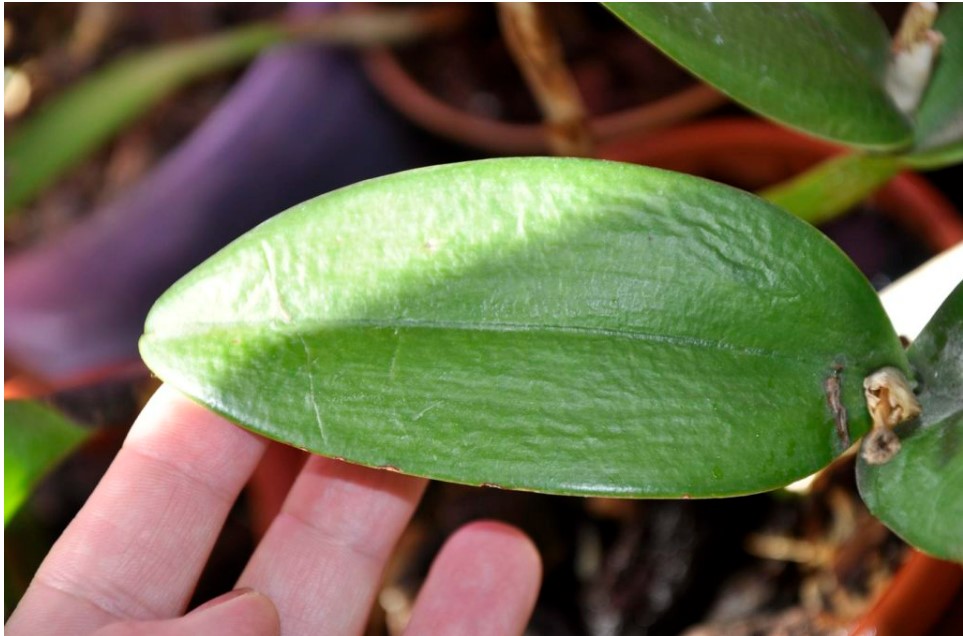
why are my orchid leaves drooping 3 best
Dry media is the sign your orchid is dehydrated - which has caused the leaves to droop. This can be fixed by watering your orchid. You can read my other article about watering your orchids HERE, but the rule of thumb is your orchid should be watered again as soon as the potting media has dried out. This is necessary, to let it dry out in.

Is My Orchid Dying? How to Tell if Your Plant Is in Distress
Drooping leaves on an orchid can be a sign of distress, and it is important to identify the underlying cause in order to take the appropriate steps to address it. Whether it is due to lack of water, light, or humidity, an incorrect potting mix, an incorrect fertilizer, or a pest infestation, it is essential to treat the problem quickly in order.

How to fix droopy leaves on your orchid! Orchid plant care, Orchids
2) Overwatering. Overwatering is one of the most common reasons why orchids drop their leaves. Most types of orchids should be watered every five to ten days during the summer. You can even water some orchids using ice cubes. However, orchids hate sitting in waterlogged mediums, which can lead to root rot. Drooping or yellowing orchid leaves.
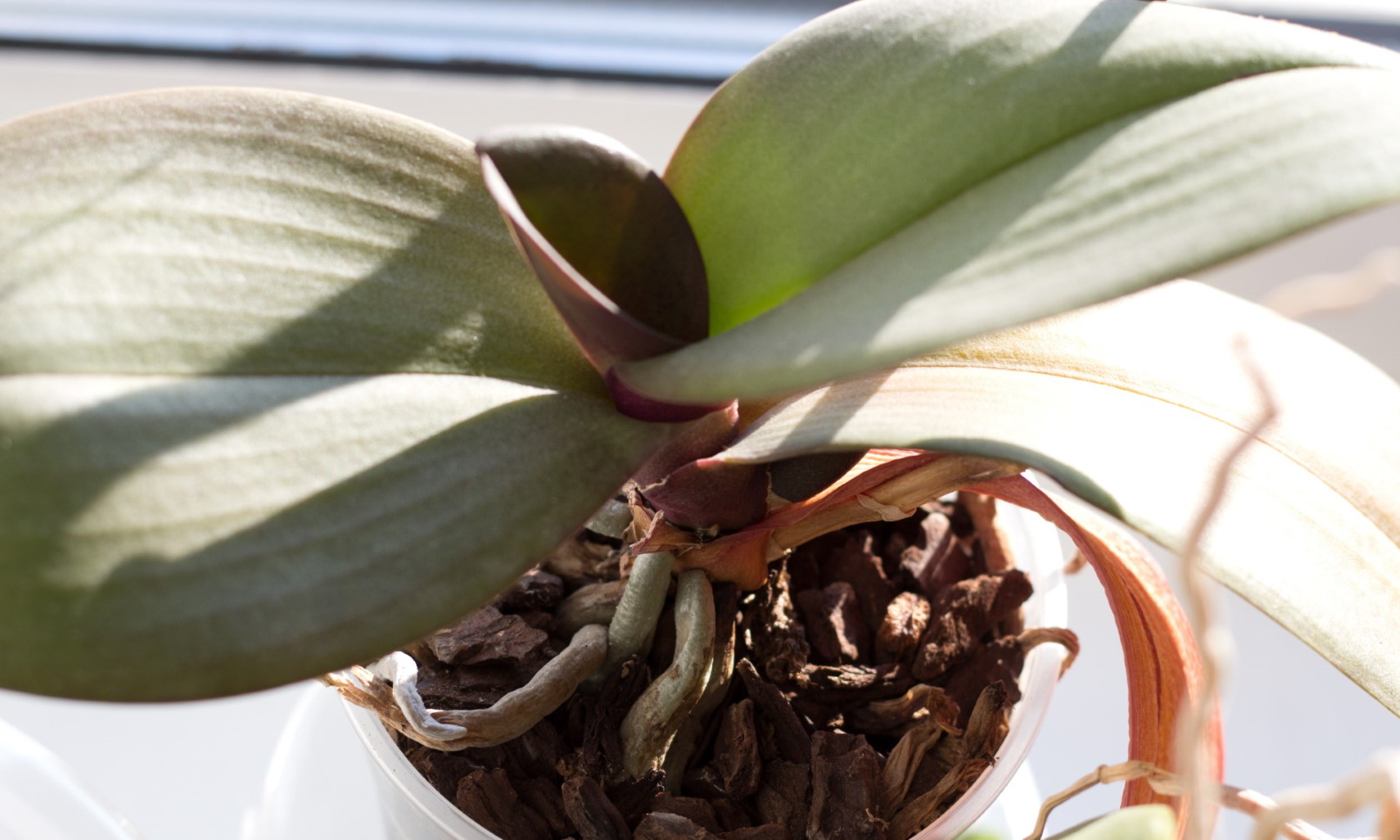
Droopy Orchid Leaves Fix To Revive Your Plant Phalaenopsis Dried
Reason 2: overwatering. Orchids' healthy roots and their health mean a lot to the plant. If you notice droopy leaves on your orchid, but you water it regularly, it might be a sign of an overwatered orchid. Excessive watering of the plant threatens root rot, infection with fungal diseases, and death of the plant.
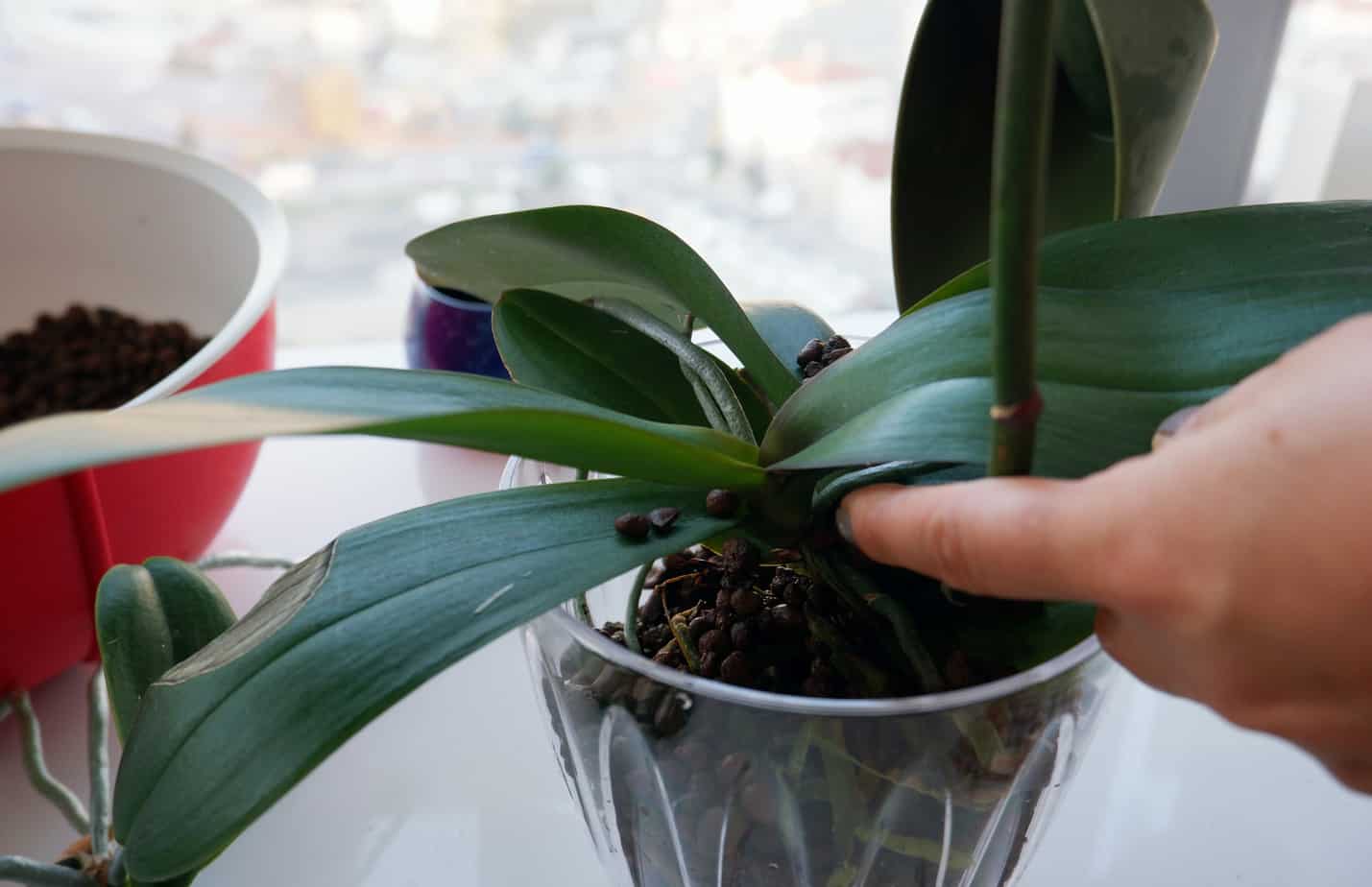
5 Reasons Why Your Orchid Leaves Drooping Plantly
Yes, that's right, when plants don't receive enough water, their leaves begin to droop. Hence, the edges will curl and the leaves will turn yellow. This is quite a normal defense mechanism when it comes to orchids. So you can better understand it, shedding leaves sometimes help a plant get rid of a surface area that would lose water to the.
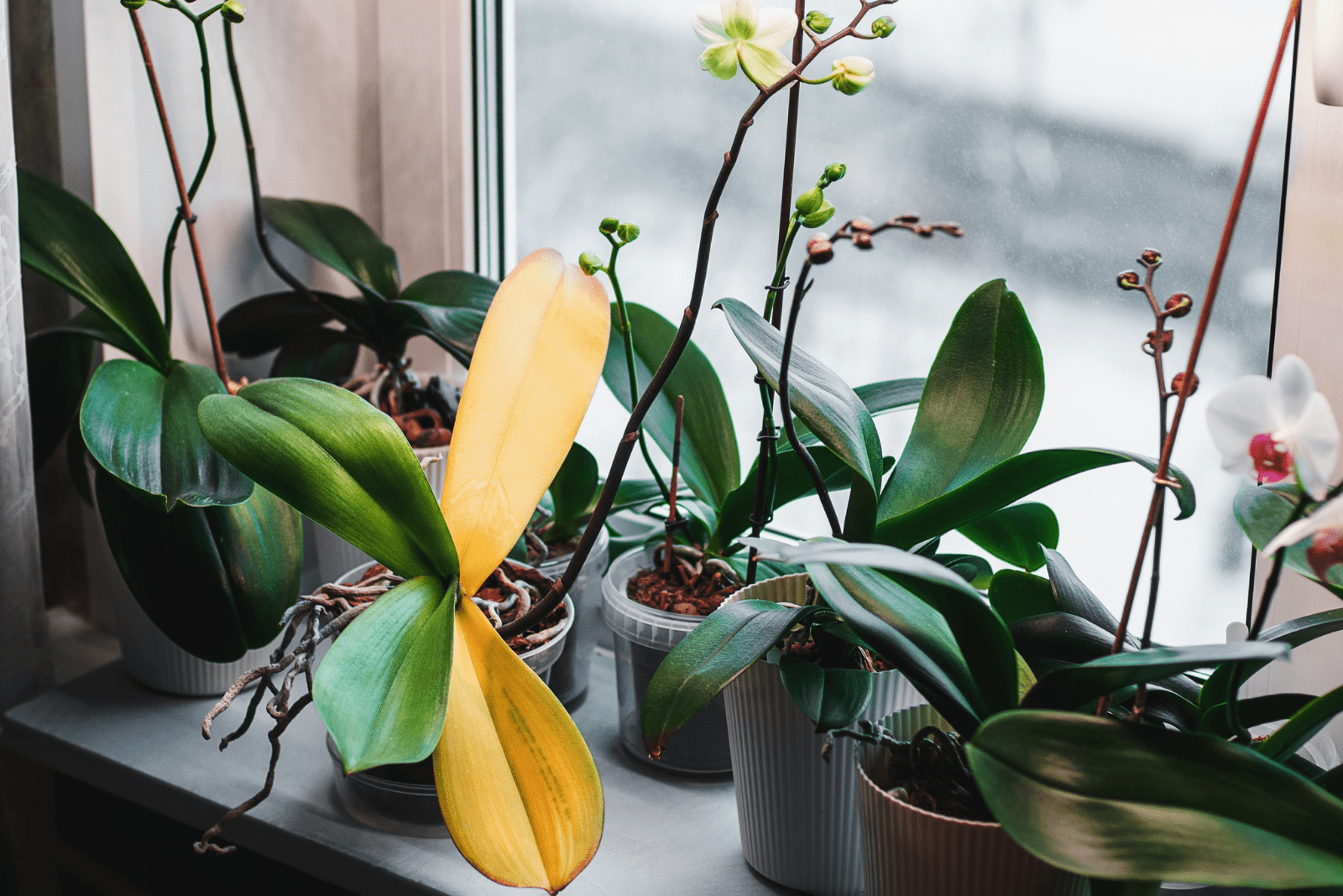
Orchid Leaves Drooping 9 Common Causes And Solutions
Insufficient or excessive light can stress orchids, causing them to droop. Place orchids in appropriate lighting conditions. Avoid direct sunlight, which can scorch the leaves. Temperature and humidity. Orchids are sensitive to temperature fluctuations and low humidity. Extreme conditions can lead to drooping and stress.

Why are my orchid’s leaves drooping? Orchid Friends Orchid plant
Incorrect watering can also be a reason for orchid flowers falling off . 2. An incorrect growing medium. This is a common problem that can cause drooping leaves and is related to overwatering. Soggy soil is often caused by using a heavy potting mix, which is unsuitable for orchids.
Orchid leaves drooping r/orchids
Light. Light issues aren't as common an issue for orchids, but if they aren't getting enough light, they may droop or shed some leaves. It's an attempt to spare the light and use it to save the strongest leaves, but orchids simply can't keep this up for long. A general rule of thumb for orchids is to provide bright, indirect light.

Why Are My Orchid Leaves Drooping? Plants Craze
Water deeply until water runs through the drainage hole. Water at the soil level and avoid wetting the leaves. If possible, use rainwater. Improper fertilization: Dropping orchid leaves may be a sign of potassium deficiency or improper fertilization. Feed orchids regularly, using a granular or liquid fertilizer formulated specifically for orchids.

Droopy Orchid Leaves 1 Fix To Revive Your Plant Orchid leaves
Overwatering. In all likeliness, overwatering is the chief reason why the leaves of your orchid are going limp. You may also notice wrinkling of the leaves and wilting. The reason why overwatering is more of a concern with orchid plants is because they're considered succulent plants that do have a better tolerance to lack of water.
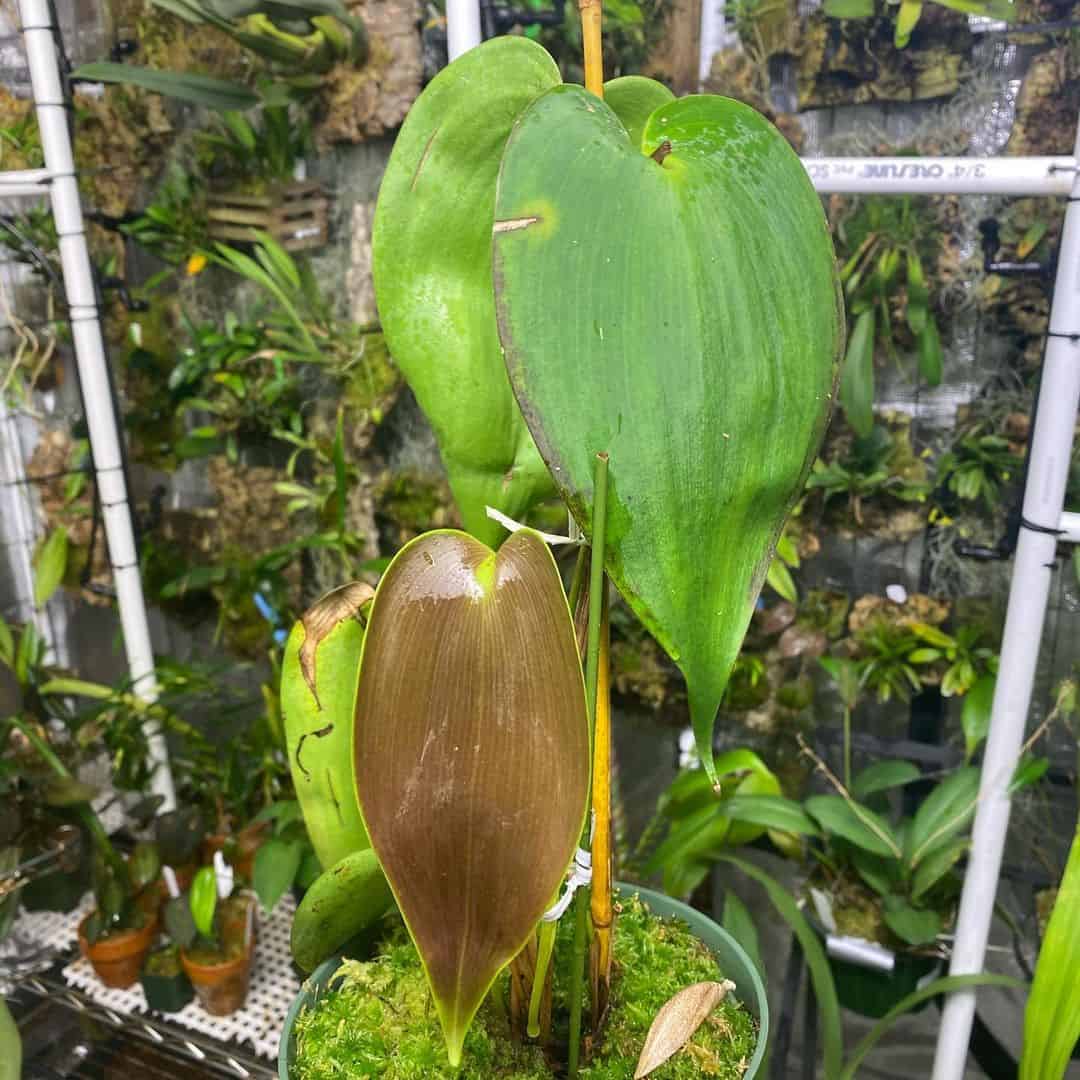
Orchid Leaves Drooping 9 Common Causes And Solutions
Droopy orchid leaves can indicate various reasons. Learn 12 causes and how to revive your plant in this concise guide. Orchids are exquisite and delicate plants, known for their elegant blooms and vibrant colors. However, if you notice your orchid's leaves becoming droopy and lifeless, it may be an indication of underlying issues.

Orchid Leaves Drooping Causes, Solutions, and Plant Troubleshooting
Another possible reason for drooping leaves is that the plant is too cold. Orchids prefer temperatures of 60-80 degrees Fahrenheit. If the temperature drops below 50 degrees, the leaves may start to droop. Finally, if your orchid isn't getting enough light, its leaves may also droop. Orchids need bright, indirect light to thrive.
Phalaenopsis Orchid Drooping Leaves
Orchids thrive in specific temperature ranges, with nighttime temperatures around 10 degrees F. lower than during the day. Temperature extremes and wide fluctuations can cause leaves to droop. Plenty of species thrive in the same spot in your home so finding the ideal location usually eliminates this problem.

What Do I Do When My Phalaenopsis Orchid Looks Like It's Wilting
Inadequate lighting can be easily fixed by using grow lights or moving the plant to a more shaded spot. We'll now discuss the nine common causes of drooping leaves of your orchid, their common symptoms, and some ways of treating them. 1. Overwatering And Root Rot. Photo from: @green_mage_orchids.

Reveal 9 Causes of Droopy Leaves on Orchid Minorfa
Orchid Leaves Drooping: 5 Most Common Reasons. There can be several reasons why your orchid leaves are drooping. There are times when it's caused by a single factor. Other times, it's a combination of many factors. The growing conditions of your plant are mainly responsible for its health. Hence, any form of stress could negatively affect.